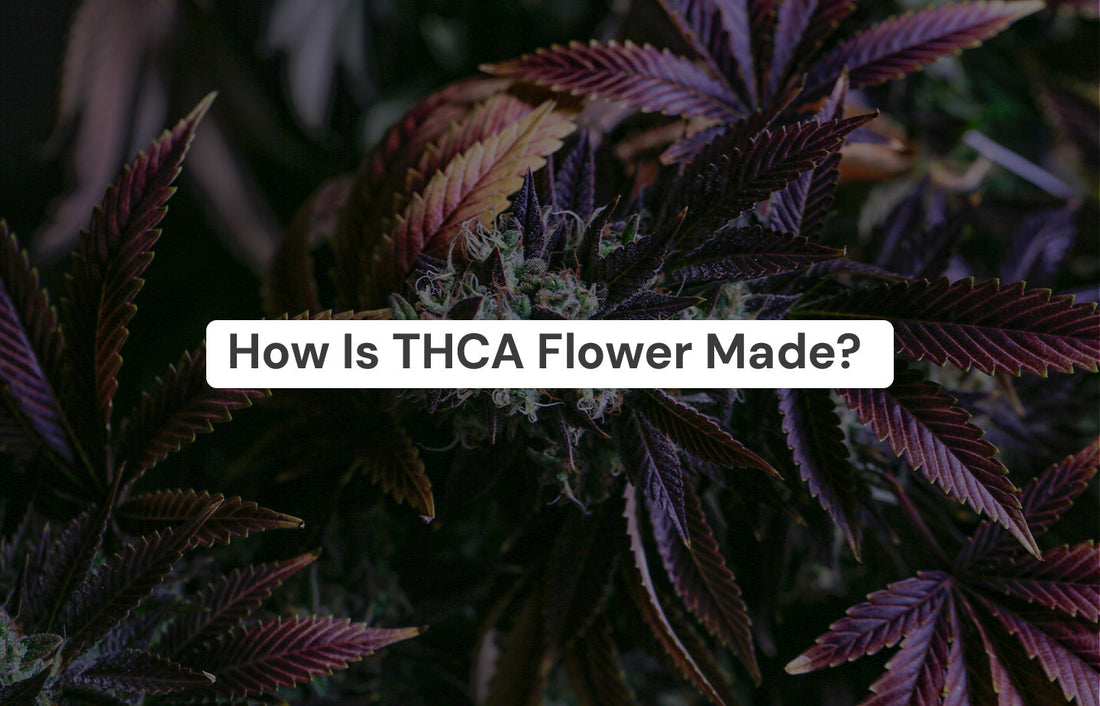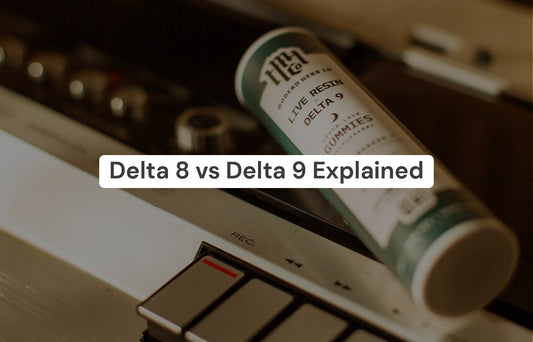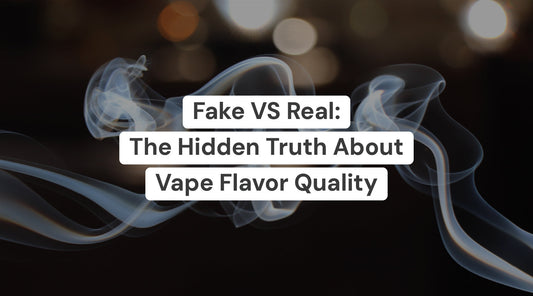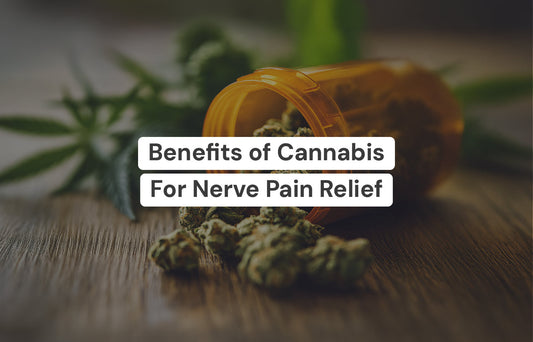
How Is THCA Flower Made?
Ever wondered, "How is THCA flower made?" You're not alone! The process of crafting this fascinating product is as intriguing as the potential it offers. In contrast to our rivals, we thoroughly investigate the complex science and artistry involved in producing premium THCA Flower. From carefully cultivating high-quality cannabis plants to extracting the purest THCA, each step is a testament to precision and expertise. Let's explore the journey of THCA flower from seed to sensation.
Table of content
Understanding Cannabis Chemistry: Cannabinoids and Terpenes
Over 100 distinct cannabinoids and terpenes make up the complex plant known as cannabis, which adds to its special qualities and possible effects. One of the most abundant and intriguing cannabinoids found in cannabis is tetrahydrocannabinolic acid (THCA). THCA is the precursor to the well-known psychoactive compound THC, and it has gained significant attention for its potential supportive effects without the psychoactive effects associated with THC.
How Is THCA Flower Made?
Cannabis buds with a high THCA content are referred to as THCA flowers. These flowers are produced through careful cultivation techniques that aim to maximize THCA levels while minimizing the conversion of THCA to THC. The process involves several stages, from seed selection to harvesting and post-harvest handling.
The Stages of Cannabis Plant Growth
Stage 1: Seed Germination
The journey of THCA flower production begins with the germination of high-quality cannabis seeds. Growers choose their strains carefully, choosing ones that are known to yield high concentrations of THCA. Various germination methods can be employed, such as the soil method, rock wool method, or paper towel method.
Stage 2: Vegetative Growth
The plants go into the vegetative growth stage after the seeds have germinated. During this phase, growers focus on providing optimal conditions for the plants to develop a strong root system and sturdy stems. Factors like light exposure, temperature, humidity, and nutrient levels are carefully monitored and adjusted to promote healthy growth.
Stage 3: Flowering Phase
As the plants mature, they transition into the flowering phase, which is crucial for THCA production. The process of flowering, in which plants start to develop buds or flowers, is triggered by growers adjusting the light cycle. This is the stage where THCA levels start to accumulate in the trichomes, the resinous glands on the buds.
Stage 4: Harvesting
Timing the harvest is critical for maximizing THCA content in the flowers. Growers closely monitor the trichome development, looking for a milky or cloudy appearance, which indicates peak THCA levels. Once the optimal time is reached, the plants are carefully harvested, often by hand, to preserve the delicate trichomes.
High THCa Production through Cultivation Methods
Selecting Strains with High THCa
Choosing the right cannabis strain is the foundation for producing THCA-rich flowers. Growers select strains that are known for their high THCA content, often relying on genetic testing and breeder information. Some popular strains for THCA production include Purple Hindu Kush, Bacio Gelato, and Lemon Cherry Gelato. At The Hemp Collect, we have curated some awesome strains with high THCA for you to check out.
Growing Conditions That Affect Cannabinoid Levels
Environmental factors play a key role in influencing the production of cannabinoids like THCA. Growers carefully control temperature, humidity, light intensity, and nutrient levels to optimize THCA synthesis. For example, cooler temperatures during the flowering phase have been shown to increase THCA levels.
Comparing Organic and Non-Organic Cultivation Techniques
For the production of THCA flowers, cultivation techniques that are organic or non-organic can be used. Organic methods rely on natural inputs and avoid synthetic pesticides or fertilizers, while non-organic methods may utilize synthetic products. The decision between these approaches is based on both legal requirements and individual preferences.
Harvesting and How It Affects THC Content
When To Harvest for Maximum THCa Content?
Harvesting at the right time is crucial for maximizing THCA levels in the flowers. Growers closely monitor the trichome development, looking for a milky or cloudy appearance, which indicates peak THCA production. Lower THCA levels can be the consequence of harvesting too soon or too late.
Techniques for Harvesting Cannabis
In order to protect the delicate trichomes and avoid breaking the buds, cannabis plants are usually harvested by hand. Growers carefully trim away the leaves and stems, leaving only the THCA-rich buds intact. Some growers may also employ specialized harvesting tools or machines for larger-scale operations.
Post-Harvest Management to Maintain THCa
In order to maintain their THCA content, the buds are dried and cured after harvest. Proper drying techniques, such as maintaining optimal temperature and humidity levels, are essential to prevent the conversion of THCA to THC. Once dried, the buds are carefully stored in airtight containers to maintain their potency and freshness.
Extraction and Refinement Processes
Different Extraction Methods
- Solvent-Based Extraction: This technique typically employs butane or CO2 to dissolve trichomes from the plant material, allowing them to be collected afterward.
- Solventless Techniques: Methods like ice water extraction and rosin pressing do not use chemical solvents, making them attractive for those concerned with health and environmental impacts.
- Distillation: This process further purifies cannabinoid extracts, using heat and vacuum filtration to isolate THCa and enhance its potency.
Turning Raw Cannabis into THCa Flower
- Flash-freezing: This technique captures the plant's maximum THCa content by preserving trichomes and cannabinoids immediately following harvest.
- Cryogenic Freezing: By freezing at extremely low temperatures, this technique separates trichomes from the plant to produce live resin, maintaining high levels of cannabinoids, including THCa.
Testing in Labs and Quality Control
Reputable growers of THCA flowers rely on independent laboratory testing to guarantee the purity and strength of their crops. These tests analyze the cannabinoid and terpene profiles, as well as screen for potential contaminants like pesticides, heavy metals, or residual solvents. Transparency in lab testing results is crucial for building consumer trust and ensuring product quality.
Choosing The Right THCa Flower
What To Look For In A THCa Flower Product?
When selecting a THCA flower product, it's essential to consider factors such as the strain, THCA potency, terpene profile, and overall quality. Seek for goods from respectable companies that offer thorough details about their production and growing procedures in addition to independent laboratory test findings.
Reading Labels and Lab Reports
Carefully read the labels and lab reports provided with THCA flower products. These should clearly indicate the THCA content as well as the presence of other cannabinoids and terpenes. Pay attention to the testing methodology and the accreditation of the laboratory that conducted the analysis.
Differentiating Between THCa Flower and Other Products
Different from CBD flower or THC-rich varieties, THCa flower is unique in the cannabis product market. Despite their similar appearance, the key difference is in their cannabinoid concentration.
THCa flower is meticulously cultivated and harvested to maintain high levels of THCa, which remains non-psychoactive until it undergoes decarboxylation into THC.
Conclusion
The production of THCA flower involves a meticulous process that combines careful cultivation techniques, precise harvesting methods, and specialized extraction and refinement processes. To say you need a green thumb is not enough to produce THCA flower. By understanding the intricacies of THCA flower production, shoppers can make informed decisions and appreciate the effort and expertise required to create these unique cannabis and hemp products.
Frequently Asked Questions
What Is A THCa Flower?
A cannabis bud that is high in the cannabinoid tetrahydrocannabinolic acid (THCA) is referred to as a THCa flower or THCA flower. These flowers are produced through specialized cultivation and breeding techniques that aim to maximize THCA levels while minimizing the conversion of THCA to THC.
Is THCa Flower Legal?
Yes. The legality of THCa flowers varies depending on the region and local laws. According to the 2018 Farm Bill, hemp-derived products containing less than 0.3% THC are allowed for use under federal law in the United States. It is imperative, however, to confirm the legality of THCa flower products with your local government.
How Is THCa Derived?
Cannabis plants themselves are the source of THCa. It is the precursor to THC and is found in high concentrations in the trichomes (resinous glands) of the plant's buds. Through careful cultivation techniques and precise harvesting methods, growers aim to maximize the THCA content in the flowers.
What Percentage Of THCa Is In Flower?
Depending on the strain, growing environment, and cultivation methods, the percentage of THCa in cannabis flowers can vary significantly. High-quality THCa flower products typically contain 15-25% THCa, although some exceptional strains may have even higher levels.
Is THCa Sprayed On Hemp?
In some cases, THCa extract is sprayed or infused onto compliant hemp flower buds to create THCa flower products. This method eliminates the need for intensive cultivation of high-THCa cannabis strains in order to produce flower products with a high THCa content. On the other hand, the THCA hemp flower that we offer at The Hemp Collect is grown rather than sprayed. However, it's important to ensure that the THCa extract is derived from legal and legitimate sources.
Related Post
Do you have more questions related to other THCA products? Here are a few THCA-related articles. Want to learn more? Visit our blog section or contact us to clarify your doubts. Our expert support team is here to help you.

About Ashley Dellinger
Ashley Dellinger is a trailblazer in the cannabis and hemp sectors, serving as the Director of Innovation at The Hemp Collect. With a keen visionary mindset, she not only propels advancements in these industries but also showcases her versatility as a seasoned professional writer based in Oregon. As a collaborative force, Ashley works alongside leading brands, processors, and retailers to elevate industry standards. Ashley Dellinger's work not only sets new benchmarks but also inspires others to pursue excellence. For a closer look into her insights and experiences, connect with Ashley on LinkedIn, Instagram, and Facebook.
















